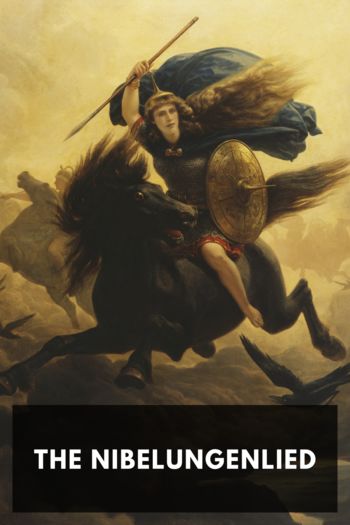The Trials of Radclyffe Hall, Diana Souhami [best sales books of all time .TXT] 📗

- Author: Diana Souhami
Book online «The Trials of Radclyffe Hall, Diana Souhami [best sales books of all time .TXT] 📗». Author Diana Souhami
She prepared herself for fame or infamy. Nothing was left to the discretion of the publisher who might show concern for other books too. She and Una discussed every detail with Audrey over dinners at Boulestins and the Ritz. Large advertisements were booked in the Yorkshire Post, the Spectator, the Sunday Times, the Observer, the Times Literary Supplement and, for publication day, in seven daily papers.
Day after day it was eighty degrees in the shade. Day after day Una endured Alfred Sachs’s interminable gynaecological treatments. Two of the dogs, Dickie and Baloo, lodged in kennels, got run over and, on TO July, amid early morning preparations to exhibit Mitsie and Poucette at the Richmond Dog Show, Maria Visetti’s solicitor phoned with the news that Alberto had died.
His death was an irrelevancy to Radclyffe Hall and led to no repair of the broken relationship with her mother. It took her a day to sort out funeral arrangements, see her solicitor, arrange the moving of Visetti’s corpse from his house at Phillimore Terrace to the undertaker’s. John was ‘abominably received’ by her mother, Una remarked in her diary. Visetti had died insolvent so John paid all burial costs and for his grave at Brookwood Cemetery. None of it deflected from the true crusade. She attended mass with vespers, benediction and the procession of Our Lady of Mount Carmel but her prayers were more for The Well of Loneliness than for her ‘disgusting old stepfather’s’ journey to the damned.
Press copies were ready by 15 July. Cape hiked the print run to 5,200 copies, ordered paper for a 5,000 run-on, and now pitched the selling price at fifteen shillings. Radclyffe Hall rallied support. She sought allegiance to The Cause rather than disinterested appraisal for a piece of fiction. She was the vessel through which God’s truth was poured. Criticism of The Well of Loneliness was sacrilege and silence cowardice. ‘I know you will believe me,’ she wrote to Una’s brother-in-law James Garvin, who happened also to be editor of the Observer,
when I tell you that I wrote this book from a sense of duty, a sense of duty which I dared not disobey … I have tried to bring the thing out into God’s air and light – for the Truth must never be feared, since it is the truth … It would be childish for me to pretend that I do not know how much your support in the Observer would contribute from the first appearance of my book on July 24th towards its success – above all towards its reception in the proper spirit, the spirit of desire for impartial justice and understanding towards an unhappy and very important section of the community.
Garvin’s support was not forthcoming. The Observer was one of the few national papers not to review the book. Both Una’s sister and mother disliked her relationship with Radclyffe Hall and the subject of lesbianism in general. They chose silence not justice and understanding. Their disassociation widened the gulf between them and Una.
More loyally, Ida Wylie was encouraged to give a glowing review for the Sunday Times. Vera Brittain was to review the book for Time and Tide, Arnold Bennett for the Evening Standard, Leonard Woolf for the Nation. Jonathan Cape phoned to say Havelock Ellis was annoyed to see his opinion piece used as an intrinsic preface when he had intended it as no more than a publicity puff. Radclyffe Hall and Una drove to Brixton to explain themselves but Ellis was out. They talked to Cape, lunched at the Ritz Grill, then drove again to Ellis, had tea with him ‘and made all well’, so Una said.
They had done all that they could and more to launch the book into life. They went again to mass to pray for it and to Mrs Leonard to see what Ladye knew. ‘P of W of L’, Una wrote in her diary on Friday 27 July. ‘Dinner Here Everyone’. There were telegrams of congratulation, flowers, champagne. Andrea was packed off to guide camp. John and Una toured the bookshops. Wells of Loneliness were everywhere, row after row in W. H. Smith’s window, in the Times Bookshop, in Trueloves and Harrods.
Next day, John had earache and the first of the reviews appeared. L. P. Hartley in the Saturday Review wrote of the book’s force and sincerity, its powerful appeal, its passages of great beauty, but criticized its polemical stance. Ida Wylie in the Sunday Times wrote of Radclyffe Hall’s courage, honesty and ‘lively sense of characterisation’. Con O’Leary in T. P.’s Weekly said readers would agree with Havelock Ellis that ‘poignant situations are set forth with a complete absence of offence’. Vera Brittain thought the book important, sincere, passionate, never offensive, but was confused as to whether Stephen Gordon’s gender bend was because of nature or upbringing. Reviewers with sophisticated attitudes to homosexuality and exacting standards for literature were critical. Leonard Woolf in the Nation called the book a failure, lacking form, discursive, tendentious. Cyril Connolly in the New Statesman said it was ‘long, tedious, absolutely humourless and a melodramatic description of a subject which has nothing melodramatic about it:
The Well of Loneliness may be a brave book to have written, but let us hope it will pave the way for someone to write a





Comments (0)